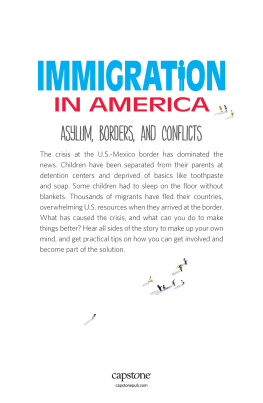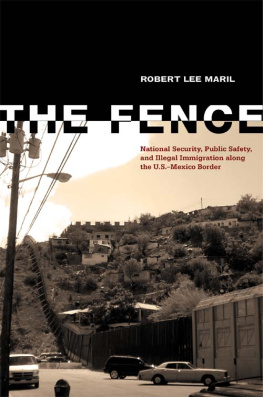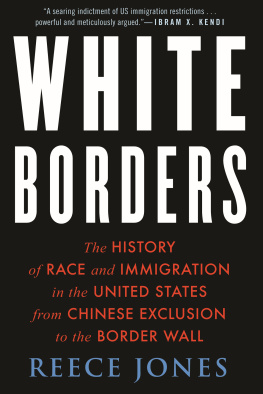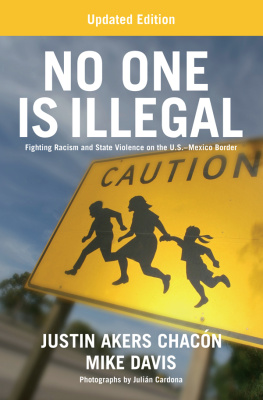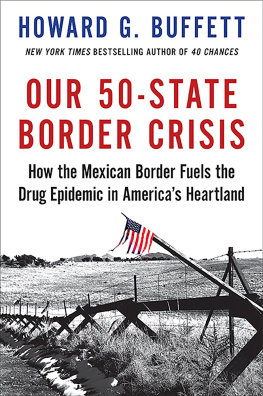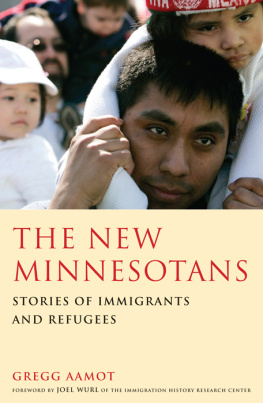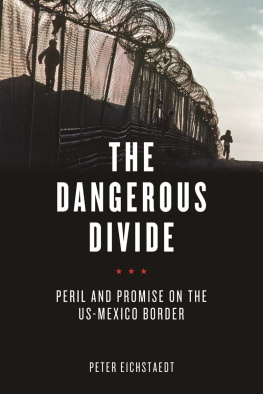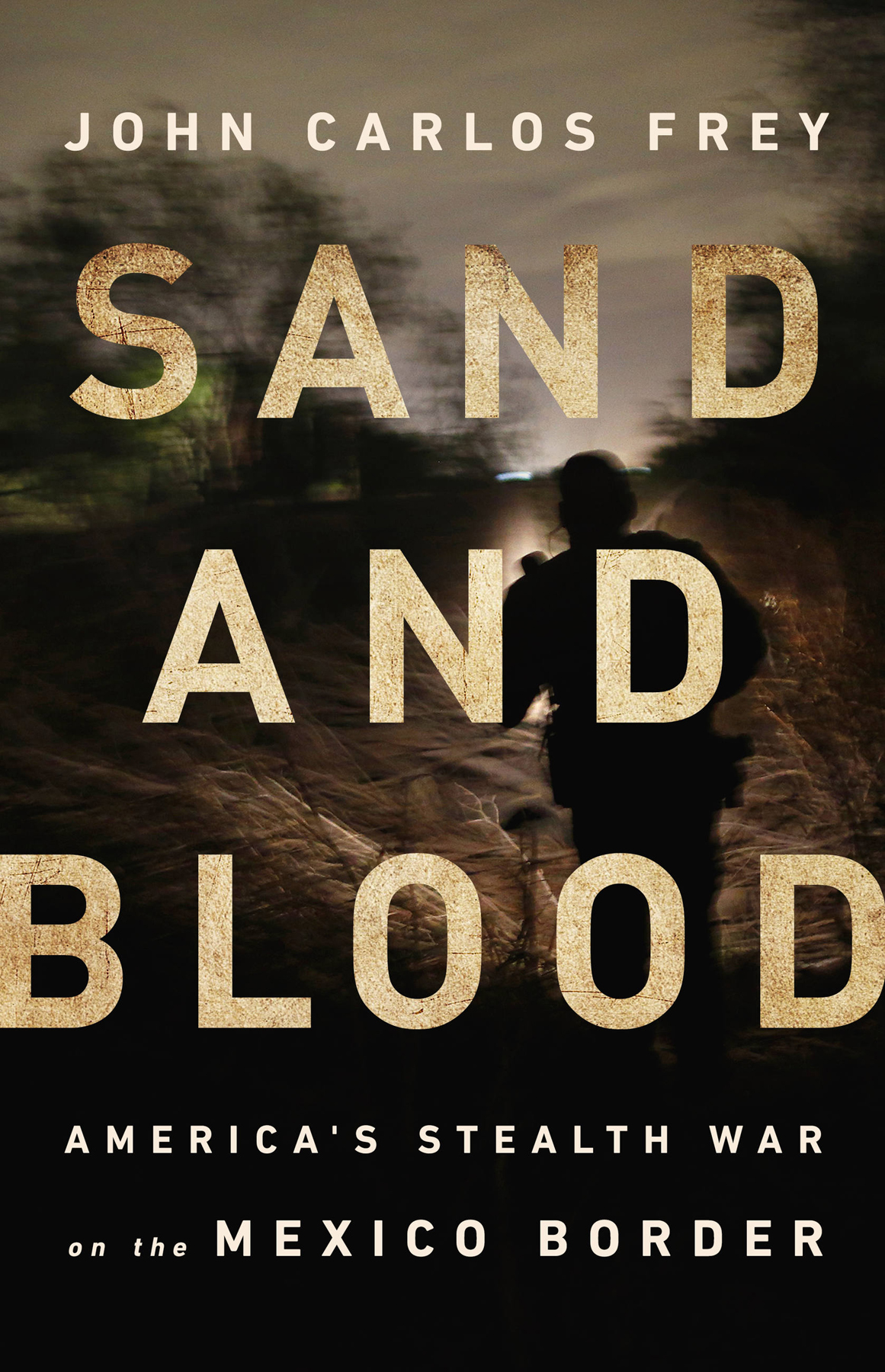Copyright 2019 by John Carlos Frey
Cover design by Pete Garceau
Cover photograph Reuters / Eric Thayer
Cover copyright 2019 Hachette Book Group, Inc.
Hachette Book Group supports the right to free expression and the value of copyright. The purpose of copyright is to encourage writers and artists to produce the creative works that enrich our culture.
The scanning, uploading, and distribution of this book without permission is a theft of the authors intellectual property. If you would like permission to use material from the book (other than for review purposes), please contact permissions@hbgusa.com. Thank you for your support of the authors rights.
Bold Type Books
116 East 16th Street, 8th Floor New York, NY 10003
www.boldtypebooks.org
@BoldTypeBooks
First Edition: June 2019
Published by Bold Type Books, an imprint of Perseus Books, LLC, a subsidiary of Hachette Book Group, Inc. Bold Type Books is a co-publishing venture of the Type Media Center and Perseus Books.
The Hachette Speakers Bureau provides a wide range of authors for speaking events. To find out more, go to www.hachettespeakersbureau.com or call (866) 376-6591.
The publisher is not responsible for websites (or their content) that are not owned by the publisher.
A portion of originally appeared in the Texas Observer (Graves of Shame, 2015) and appears here courtesy of Texas Observer.
A section from originally appeared in Salon.com (Cruelty on the Border, 2012) and appears here courtesy of Salon.
Library of Congress Control Number: 2019937320
ISBN: 978-1-56858-847-6 (hardcover)
ISBN: 978-1-56858-846-9 (e-book)
E3-20190509-JV-NF-ORI
To my mother, an immigrant from Mexico who came to America to provide a better life for me and my siblings, and to all the mothers and fathers who had the same intention and lost their lives in the attempt.
I was born in Tijuana, Mexico, and my family moved to the United States in 1965 when I was a toddler. Even though I was born in a foreign country, I am a US citizen because my father was. It took me a long time to realize that by this simple twist of fatethe fact that my parent was a citizenmy circumstances were radically different from those of most people born in Mexico, affording me benefits that my counterparts could not access.
In the United States, we lived in a rural part of southern San Diego, California. From my family home, I could see Tijuana just a few hundred yards to the south. The phenomenon of migration was something I witnessed every day. Migrants seeking work in the United States would cross the border and quickly make their way northward, running through our backyard at night on their journey. US Border Patrol agents usually chased them. A Border Patrol helicopter would fly over every night; sometimes, its spotlight would cross my bedroom window, making the whole room as bright as day.
Occasionally the neighborhood kids would play in nearby open fields, trying to run into the helicopter spotlight. When we got close to it, we would stir up dirt, creating a noticeable cloud of dust and making it seem like a migrant group had just run through the area. Sometimes, the helicopter spotlight would linger on the cloud we had created, and we would all hide under bushes, scared but giggling. Eventually, we would get spooked and run to the safety of our homes. We never sensed that we were in any real danger. Looking back, I realize that it was not a great idea to taunt federal law enforcement officials, but at the time, it was normal for us. Its what we did for fun. Didnt every kid play migrant on the run? Didnt every kid grow up this way?
I was never taught to fear the migrants, either. My parents told me that they were mostly poor people coming to California to work on the farms or on construction sites. Sometimes, on my walk to school, I would see migrants lying under cars to stay out of the damp weather. They were usually young men in their twenties and thirties; I rarely saw women or families. Sometimes I would wave or talk to them and continue on my way. At the time, there was no real border fence separating San Diego from Tijuana. Marking the borderline was a remnant of a chain-link fence that had been smashed and destroyed years prior. It was no barrier or deterrent. You could just tell that this was where one country started and the other ended. People would gather along the line and picnic or play soccer and music. It was a kind of no-mans-land.
Hundreds of migrants would gather along this strange strip of land every night. They would wait for a moment when the helicopter and Border Patrol vehicles were far enough away, and small groups would run together across the border, knowing that guards would not be able to catch them all. As a Border Patrol vehicle approached, the migrants would scatter, hide in the brush, or keep running. If a migrant could avoid the Border Patrol for a few miles, he was usually safe in the United States. This game of cat and mouse wasnt particularly effective from the perspective of the Border Patrol. I heard at the time that for every two migrants who were caught, more than ten would get across. That seemed about right, because a Border Patrol vehicle could only hold a few, and migrants usually came in large groupstoo big for the patrols to manage.
It wasnt long before the Border Patrol presence touched our lives more directly. One day when I was about twelve, I went for a walk with my mother down by the nearby open fields and farms. It was winter and the rainy season, which always brings a springlike bloom of plants and flowers. My mom loved to see the flowers, and I liked to play in the seasonal stream that was full of tadpoles. As we left the neighborhood and walked near the Tijuana River, I ran ahead of my mother to see what I could find in the water below. I made this trek frequently, sometimes with her and many times alone. It was my favorite place to explore. I could see Mexico in front of me and even hear sounds of traffic and music coming from the nearby city of Tijuana, just several hundred yards away.
My mother was a Mexican woman with dark features and dark skin. She spoke English with a thick Mexican accent. That day, as she walked seemingly alone along the road near the US-Mexico border, moving toward where I was, she caught the attention of a Border Patrol agent who was looking for migrants. Agents would drive up and down our neighborhood streets regularly, always on the lookout for brown faces. This one stopped to question my mother about her immigration status, asking for identification. She told him she lived just up the road and could get her ID from home. The agent didnt believe her. She told him that her husband was in the house and that he could stop by and ask him. He still did not believe her. She told him she had lived in the United States for twenty years and that I, her son, was playing nearby. Instead of listening to my mothers pleas, the agent put her in handcuffs and then in the back of his patrol car. He took her to the Imperial Beach Border Patrol station, where she was processed and held in a cell. Within a few hours, she had been deported to Tijuana.
A few minutes after she had been taken away, I came back from the rivers edge to find my mother missing. I called for her and walked up and down the road but found no trace of her. I ran home and told my father. He quickly called the police, and we all waited. We suspected that the Border Patrol had taken her, but since I hadnt seen anything, we werent sure. For more than twenty-four hours, we knew nothing about what had happened to her.


